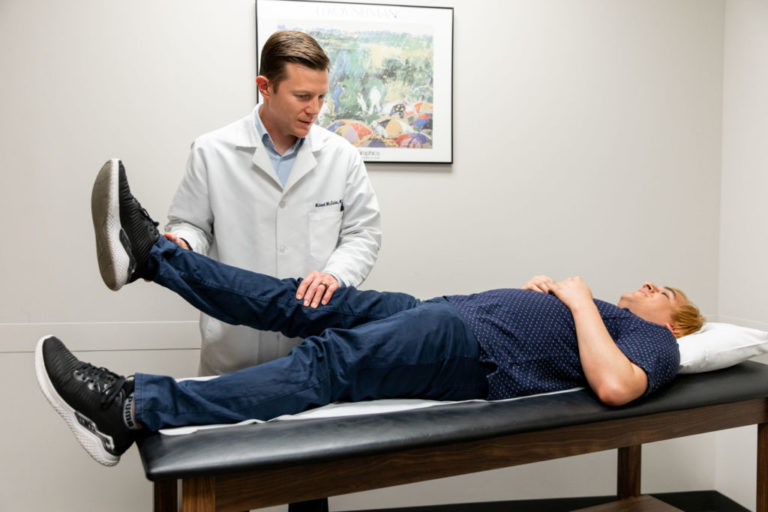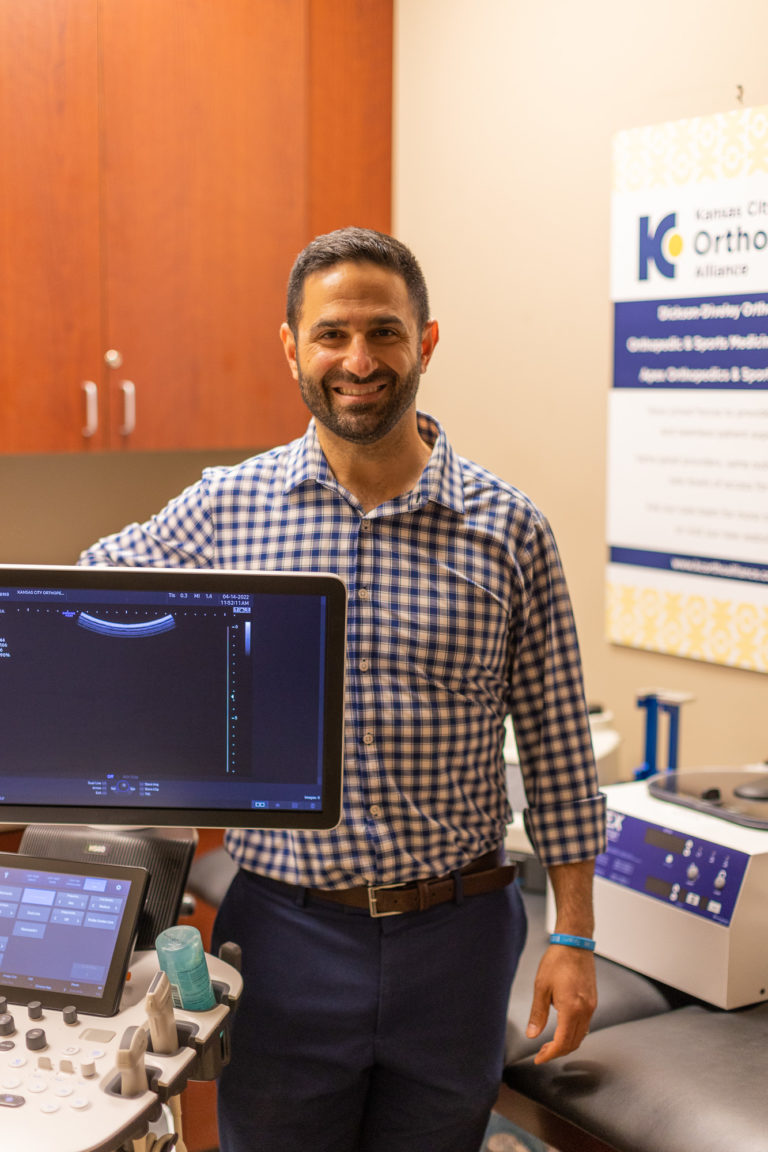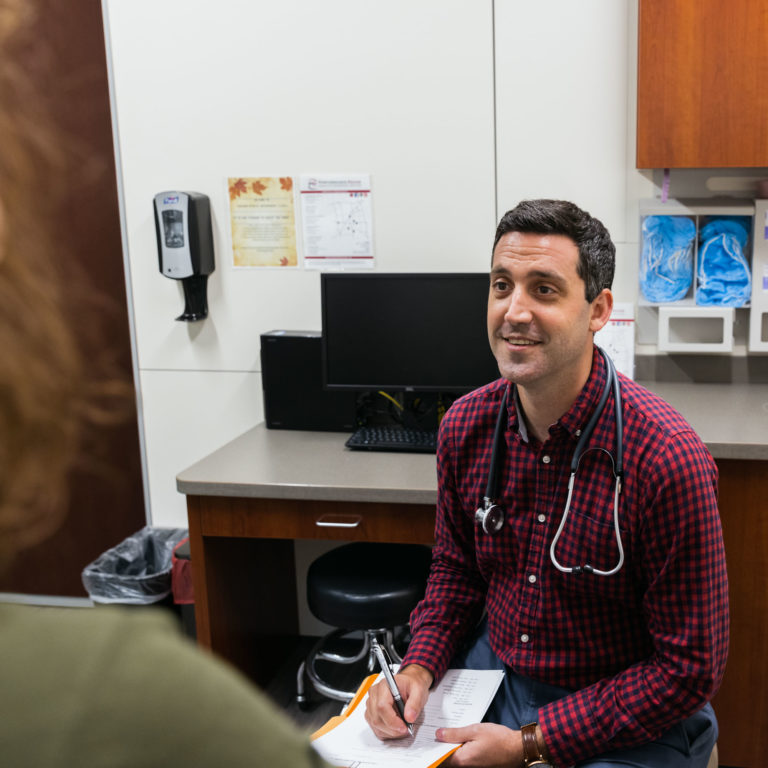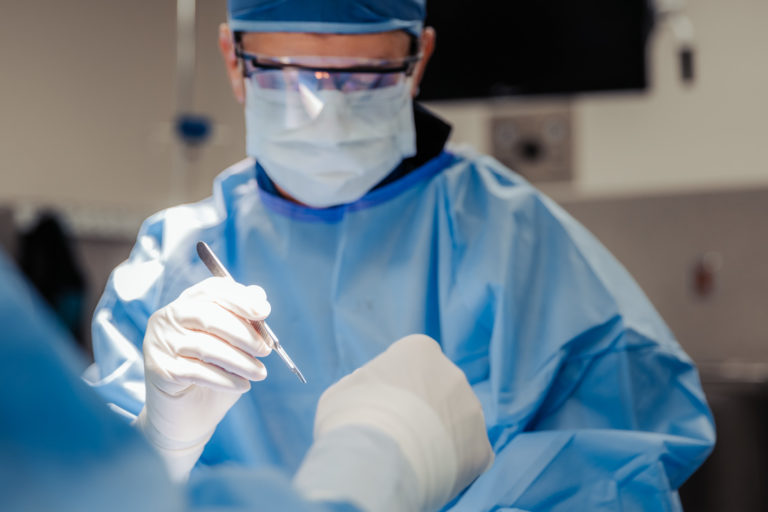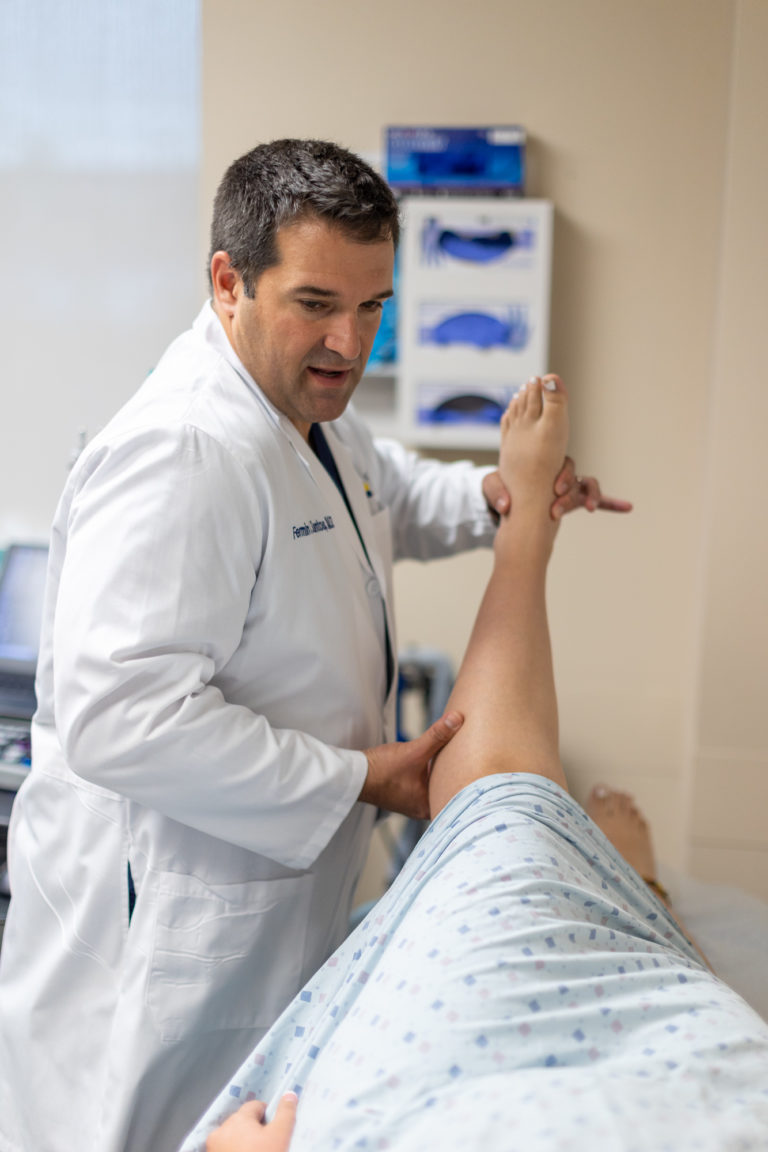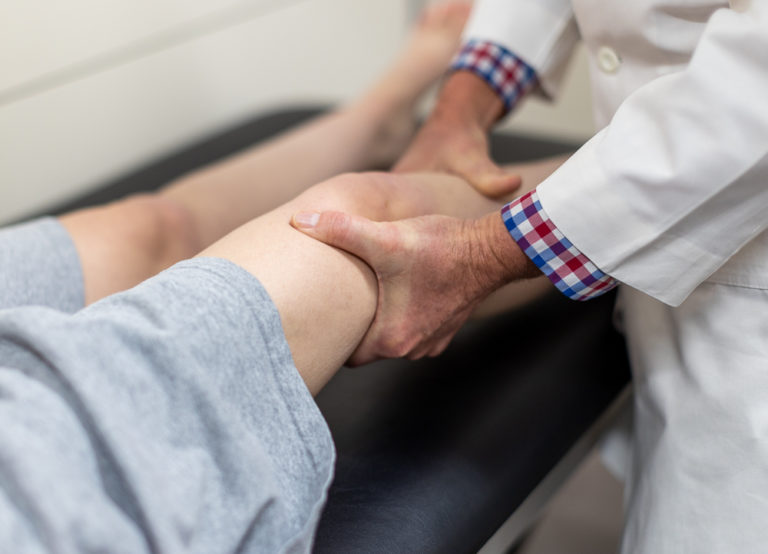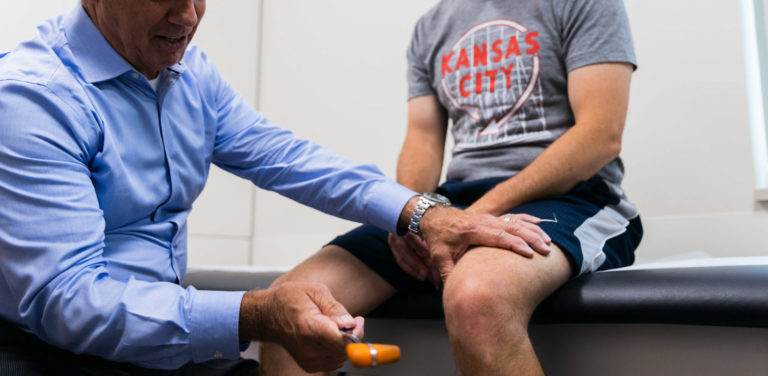Cartilage Restoration and Repair (MACI) in Kansas City
Cartilage Restoration/
Repair (MACI)
Advanced repair for long-term results.
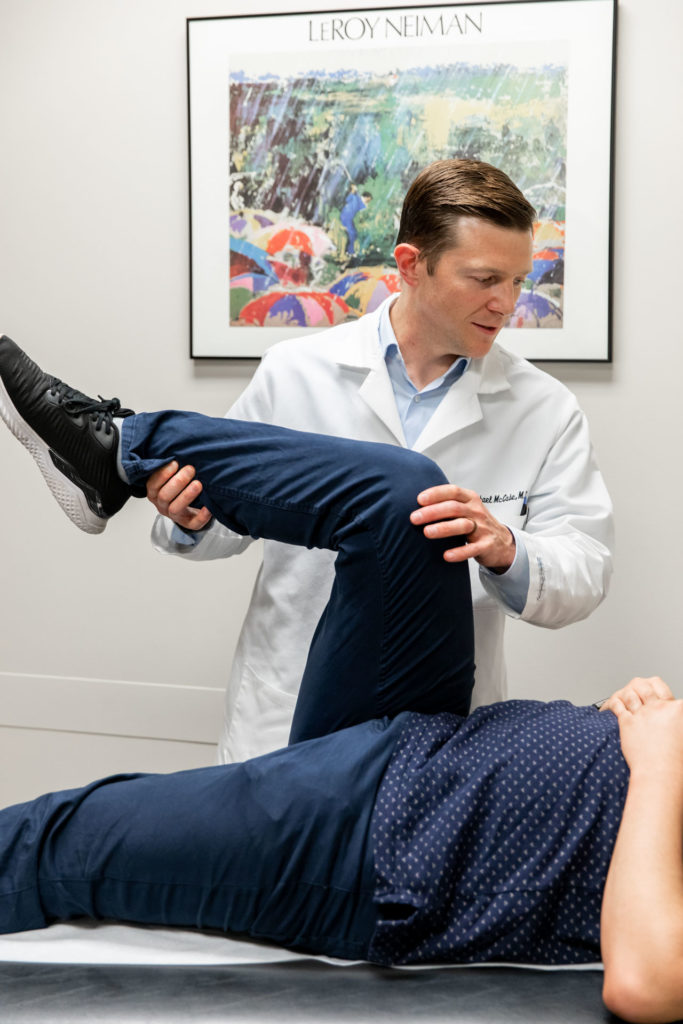
Understanding the Basics Behind Cartilage Restoration/Repair
What is Cartilage Restoration/Repair?
Knee pain and injuries are one of the most common reasons why a person would visit a doctor.
A somewhat common issue that our providers see at Kansas City Orthopedic Alliance are issues with knee cartilage, which is the joint surface that covers the ends of the bones. Your knee cartilage is important for the smooth motion of the leg, and it acts as a cushion that protects your bones.
When this cartilage tears, it’s both painful and can lead to a loss of function as well as long-term complications such as osteoarthritis. These tears are called lesions, and one of the ways that the providers at Kansas City Orthopedic Alliance treat these lesions is through Matrix-Induced Autologous Chondrocyte Implantation surgery (MACI).
Regardless of your knee issues, the providers at KCOA are adept at finding the necessary treatments to correct the problem. Our expert orthopedic knee physicians at Kansas City Orthopedic Alliance have the knowledge required to treat numerous issues, both surgically and non-surgically. When you visit a specialist at KCOA, we focus on creating a treatment plan based on your specific conditions, symptoms, and recovery goals. Depending on your individual needs, we may recommend MACI as a treatment option.
Deciding on a MACI procedure in Kansas City is a decision that typically involves guidance from your primary care doctor and orthopedic physician
When you choose Kansas City Orthopedic Alliance, one of our highly-trained orthopedic knee specialists will conduct an initial evaluation to better understand your condition. After a complete review of your results, your provider will then discuss whether a MACI procedure in Kansas City is the best option for you.
Common signs of a cartilage lesions include:
- Aching within the joint
- Pain when twisting or rotating the knee
- Popping or grinding noises with movement
- A locking sensation when attempting to move your knee
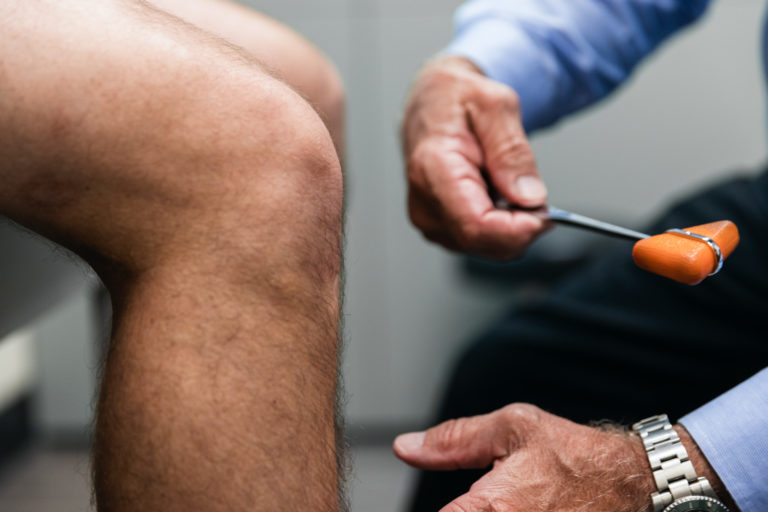
Kansas City Orthopedic Alliance Knee & Leg Injuries Assessment
Assessing the Injury
Determining the proper treatment process for knee and leg injuries starts with an assessment from one of our experienced providers.
You can think of knee pain as a spectrum, with some instances being more severe than others. The KCOA orthopedic specialists always focus on each individual patient and their concerns before creating a treatment plan.
Therefore, during your initial appointment, we will often ask questions such as:
From there, we can decide what treatment option will align best with your needs and lifestyle goals. Once we’ve completed a proper assessment, your provider will often begin with a physical examination to help determine the origin point of your pain. In some cases, advanced testing may be required for a full diagnosis.
- Does your pain currently limit you or your activities?
- Has your pain progressed or worsened recently?
- Did you notice or hear a popping sound at the time of your injury?
- Are you having any clicking/popping, grinding or catching/locking sensations in the joint?
- Have you noticed any change in your symptoms that has made it more challenging to function?
- What are your lifestyle goals?
- How has pain affected those goals?
Examination
X-Ray
Also called radiographs, an X-ray captures a picture of the knee. Orthopedic physicians may order an X-ray to rule out the possibility of a fracture (broken bone), osteoarthritis, or other bone-related conditions.
Magnetic Resonance Imaging (MRI)
MRI captures images of muscles, bones, cartilage, and tendons to help provide information other tests can’t detail. During an MRI, you will lie on a table that slides into a tube-shaped scanner. The machine creates a magnetic field around you, using pulsed radio waves to form the MRI images.
CT Scan
A computerized tomography (CT) scan can provide a series of X-ray images taken from the ankle, showing the bones, blood vessels, and soft tissue in your body. This, ultimately, provides more detailed information than a regular X-Ray.
Symptoms
Common Signs and Symptoms of MACI Injuries
With so many different structures working together in your knees, there are many potential causes of pain. And each of those causes has a unique set of symptoms.
Proper cartilage restoration techniques can help treat your issues. Though you can treat many knee issues with conservative measures and non-surgical options, sometimes surgery may be necessary if the patient’s knee doesn’t respond to these treatments. Knee injuries can also degenerate based on certain risk factors, such as age, activity level, whether or not you’re obese, and more.
Causes
Common Causes of MACI Injuries
The body has different kinds of joints, and they all face different challenges.
The severity of your knee and leg pain can vary based on a number of factors, including the location and the source of the issue. The knee is a very vulnerable joint in your body that’s susceptible to injury from a forceful motion, as well as the wear and tear that builds up over the years.
Your knee relies on a number of structures to function, including bones, cartilage, ligaments, and tendons. As the years go on, many people struggle with the effects of repeated movements, such as walking, running, or jumping. Additionally sudden movements like pivoting, bending, or twisting can result in injuries that require treatment from an orthopedic specialist in Kansas City.
Treatment Alternatives
In most cases, surgery is not the first option for treatment at Kansas City Orthopedic Alliance. If we can treat your knee and leg issues with more conservative treatments, we’ll choose those options. We typically exhaust all non-surgical options prior to recommending surgery. Non-surgical treatments for meniscus injuries include:
Physical Therapy
Movement can actually reduce pain and encourage healing in the meniscus, as movement increases circulation and supplies and other nutrients that support joint health and function. Stretching and flexibility exercises, strengthening exercises, deep tissue massages, and cryotherapy (use of cold packs) are particularly helpful.
Medications
Your doctor may recommend over-the-counter NSAIDs (Non-steroidal anti-inflammatory drugs, such as Advil) or prescription medications. Especially with NSAIDs, you should always talk to your doctor to ensure they are the right treatment for you.
Stabilization
Stabilization involves the use of braces or other supportive devices to reduce stress and allow the affected area to heal.
F.A.Q.
Frequently Asked Questions
Kansas City Orthopedic Alliance is here to help.
Our care is personal. Our team is knowledgeable. And we’re more available than ever.
With access to board-certified specialists across Kansas City, we have the tools to meet almost every musculoskeletal condition.
Our Locations
Overland Park, Kansas
10777 Nall Ave Suite 300 Overland Park, KS 66211Leawood, Kansas
3651 College Blvd. Leawood, KS 66211Kansas City, Missouri
Saint Luke's Medical Plaza #1 4320 Wornall Rd., Ste. 610 Kansas City, MO 64111Belton, Missouri
Belton Regional Campus 17067 S Outer Rd #301 Belton, MO 64012Blue Springs, Missouri
St. Mary’s Medical Center, Main Entrance 203 NW R.D. Mize Road, Suite 200 Blue Springs, MO 64014Shawnee Mission, Kansas
7450 Kessler St ste. 140 Merriam, KS 66204Prairie Star (Lenexa, Kansas)
Prairie Star 23401 Prairie Star PkwyBldg. B, Ste. 220 Lenexa, KS 66227

